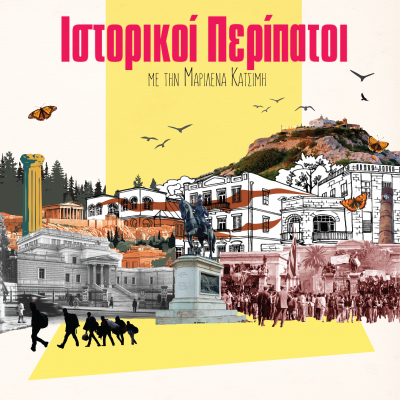In this episode of “Historical Walks”, Marilena Katsimi is joined by historian Dimitris Bacharas, who, through the lens of his new book, How and why we reached the Greek revolution (Πώς και γιατί φτάσαμε στην ελληνική επανάσταση) guides us on a journey through the Peloponnese. Together, they explore the lives of the “prokrits,” the local lords of the Morea, seeking to understand the forces that led them to revolt.
What drove men, many of whom were nearing their sixties, to abandon the security of their social and economic status and take up arms on the frontlines in 1821?
What shared characteristics bound this group, and what common goals united them?
What role did the Friendly Society play in their decision, and how did it approach them?
This episode delves into the complex relationships between the local lords and the Ottoman officials, shedding light on their political and economic activities, as well as the difficulties they faced in the years leading up to the Revolution. The intensity of their rivalries, their shifting alliances with the Ottomans, and their calculated moves shaped the political landscape of the time, with their eventual participation in the Revolution being the culmination of a dynamic interplay of conflict and cooperation.
Dimitris Bacharas also curates the musical selection for the episode, offering a sonic glimpse into the period through pieces of Turkish classical music enjoyed by the elite of the Ottoman Empire, as well as classical music from Constantinople cherished by the Greeks, alongside the folk songs of the Peloponnese.
Produced and hosted by Marilena Katsimi, journalist.
